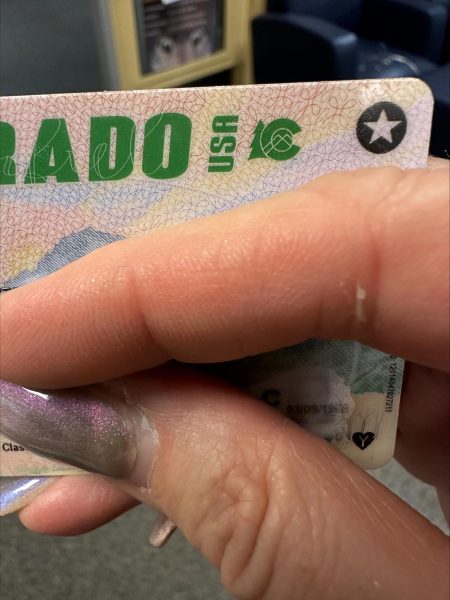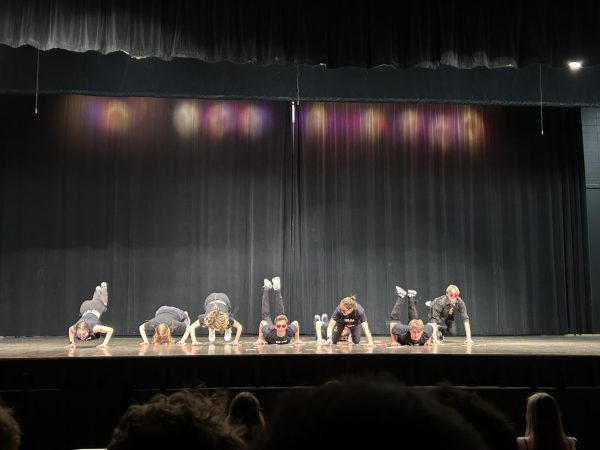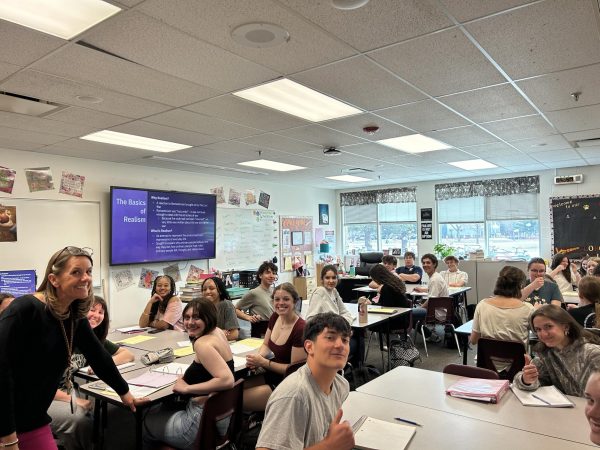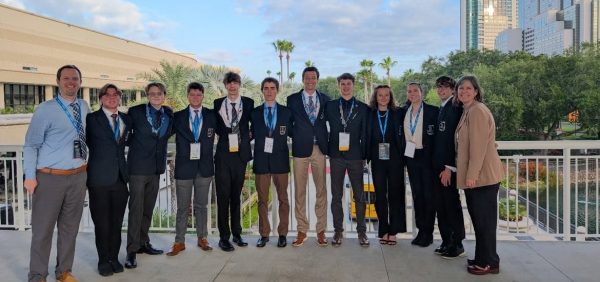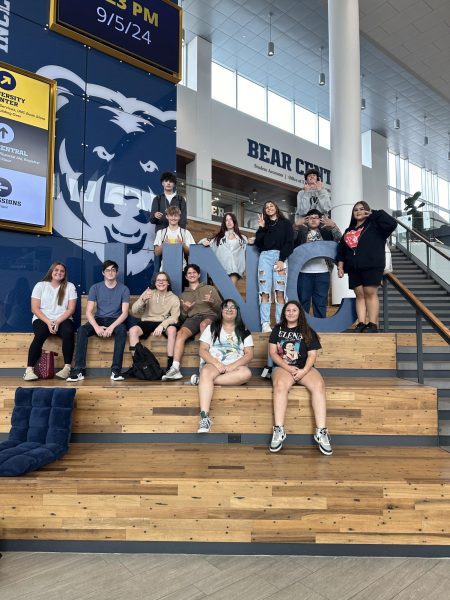An Interview with new Poudre Superintendent Brian Kingsley
The following in an exclusive interview with incoming Poudre School District Superintendent Brian Kingsley. He will be filling a previously vacant position after months of searching around the country. He currently works in Charlotte, North Carolina, as the chief academic officer for the Charlotte-Mecklenburg school system.
What motivated you to become an educator?
Growing up in Northeastern Pennsylvania, my family–starting with my grandparents and extending into my parents–really instilled in all of us as children that making an impact in your community was really, really important. I didn’t necessarily know what that meant. It could be community service; it could be helping your neighbor, and we did all of those things growing up.
But I was profoundly impacted by the teachers and the coaches I had growing up. I believe their investment in me gave me the courage to not only learn a lot of different things but also to learn to love myself. In essence, they helped me change the trajectory of my life and feel comfortable taking risks, leaps of faith, moving for opportunities. I really felt comfortable in a school setting growing up and I’ve always dreamed of creating those same–if not better–opportunities for students that I serve.
I’ll be honest. When I went to college, I went to Penn State University, and I was undecided on my major. When I started as a freshman I really wasn’t certain. I took an exploratory education class my sophomore year that really exposed you to classroom instruction and understanding leadership. One of my first days they brought me to a second grade classroom and the teacher told me, “Observe, help out if you can, we’ll talk at the end of the day.” I have a hard time sitting still. I got up and immediately started engaging with six and seven-year olds and I felt like a lightbulb went off in my heart. It was my niche, it was my calling. I really haven’t looked back since.
I know you’re coming from Charlotte, NC. The cultures and environment between there and Colorado are vastly different, and this will be a big change. What drew you to work in PSD in particular?
While, yes, they’re very different, I think there are some parallels between North Carolina and Colorado. North Carolina has mountains–not the Rocky Mountains–but we have opportunities for hiking, fishing, camping, being able to be outdoors. Those particular things and some of the most enjoyable aspects of living in North Carolina. I believe that Colorado, while it’s not just a great professional opportunity, that the quality of life that the Fort Collins area and PSD will provide for our family is really exciting.
I think another parallel between North Carolina and PSD specifically is there’s great universities and industries that support public education. Those two aspects are really how you breathe oxygen into the heart of a community. If you can tie K-12 in with higher education like Front Range and Colorado State and all of the various industries–I think there are over 8’000 businesses that are eager and excited to work with students, and that doesn’t even include non-profits. I think the conditions are there to not just make it a really strong district, which I believe it already is, it could be the model in the country for not just the highest performing district but also for a community that is a model for economic mobility and that is responsive to all people’s needs.
There’s lots of room to grow in all communities but I think there’s an eagerness and a hunger in PSD. Starting with our Board of Education, I think there’s a courage to learn and to take a stance on equity, diversity, inclusion and to name uncomfortable truths about our data in the spirit of being able to grow in partnership with the people that we serve. I want to be a part of an organization that wants to grow.
I couldn’t be more excited for my family, for myself, to be a part of a system like PSD.
What are your main goals moving into the fall semester?
First and foremost it’s getting connected. I think in order to lead it requires me to listen, and learn, and understand the lived experiences of people in the community. I need to get a chance to meet with students, with our community members, with our principals, our teachers, our classified staff, and develop a positive working relationship with our Board of Education to do the things that are necessary to move our district forward. Our ability to grow and my ability to lead is contingent upon the relationships that I’m able to develop.
It can’t just be listening and learning, but for the fall semester there is going to be a lot of listening and learning in the spirit of developing a comprehensive, strategic plan for the district that can set us on a path for the next several years with the community to get behind some key goals and strategies that can help move our district forward. I think that’s a clear charge of our Board of Education and I see that as an opportunity, not a challenge, to work with the members of our community, including students, to co-author and co-develop a plan that we believe in.
What is your COVID-19 response going to look like? What will you prioritize going forward?
I think prioritizing in person instruction is gonna be incredibly important. I do think remote and hybrid instruction has served some families well and I’m grateful that our district has created opportunities for families that are still unsure about whether in person instruction is the best option for their children and that they have options where they don’t have to leave our district and can continue to receive flexible, virtual instruction.
I think the data suggests that not just across the nation, but across the globe, that we can put protocols in place to create in person instruction in a way that’s safe for students and staff. Prioritizing them has been really important. There has been unfinished instruction. I don’t say that to indict teachers and students–this has been really hard for everybody to live and work and learn in a crisis. To be honest with you, there were people who were in crisis prior to the pandemic. Acknowledging that some of the issues that are arising now have existed prior and have only amplified for certain members of our community, especially our most vulnerable and our most marginalized.
Our pandemic response has to focus on learning acceleration. We aren’t going to be able to intervene our way out of this. We can’t be teaching below grade level standards. There are students who have figured out ways to continue to learn and people have learned lots of different ways. It may not have been in the typical ways we’re accustomed to, but there’s been a lot of learning about ourselves and our ability to adapt and be flexible, but we need to make sure we’re immersing our students next year in standards aligned with grade level appropriate instruction.
I think that requires us to extend learning time and learning opportunities. I know PSD is being thoughtful about providing robust summer school programming and I think that needs to extend into next year. In my mind it isn’t just an extension of the traditional school day, but it should be an opportunity to extend enrichment opportunities and advisory opportunities for people to invest in themselves socially and emotionally. There needs to be a joyful, fun, and engaging aspect of our response for people to feel connected back in school.
Lastly, all of us are dealing and coping with the pandemic in different ways. I think it requires a hard look at an expansion of mental health support, for students and staff so they feel connected to our community, feel connected to our schools, and that there’s greater stability in our homes. I know the district has invested in that deeply but I think that there’s an opportunity to extend that even further. I’ll be really eager to learn more about that but I’ve heard loud and clear from conversations from our board and hearing from families that there’s definitely an eagerness to expand those supports and services. I believe I will need to prioritize that.
You brought up in your interview that working with classified staff is important to you. How do you plan to involve them further?
There’s leadership in all roles in our system. Everybody’s important. If all of our classified staff decided to take the day off our district would shut down immediately. The value that our classified staff bring is immeasurable. I’ve experienced that in every role that I’ve played in the system from teacher, assistant principal, principal, an executive central office leader. I’ve been not just reliant on what they do but my relationships with them so they feel part of the organization as well.
The vision that we create in a system–everyone needs to see themselves in it. I will model that through my actions, not just my words. In our strategic plan that we need to co-develop, our classified staff need to see a role for themselves in that and the importance that they play in helping serve our students and serve our community.
I think me being very visible in our schools and across the district, having conversations and getting a chance to understand their experiences in the community and as an employee is really important. I also think that my working relationships with their association–I know not all classified staff members are a part of the association, but I think establishing a healthy working relationship with them is going to be a priority.
I want them to feel as important as somebody in our system who may have a very different leadership role. We all play an important part in moving the organization forward. Humility is a huge aspect of me as a person and how I intend to lead. Recognizing and honoring the huge role that our classified staff plays is incredibly important. I am hopeful that they can begin to see that immediately in my actions, not just my words.
Students said during the superintendent search that we desired a person who would approach the position while considering student voice. How would you fulfill this wish?
That was one data set that, when the position was advertised, really caught my attention. The students didn’t necessarily have the most positive perception of the system compared to the stakeholders. That caught my attention, because why are we doing this work? We’re doing it in service of the people that are sitting in our classrooms.
Your voices matter deeply to me. I think really establishing a student advisory council, with at minimum our secondary schools, to better understand and promote student leadership, having students organize, to better understand student priorities and student needs at a school level so I can stay connected and establish relationships with those student leaders so I can better keep my finger on the pulse of what’s really happening. It’s not just about establishing relationships with a few student leaders, it’s also about me getting a chance to sit in classrooms and really get a sense of understanding of what our classroom and school experiences are really like to work with students to create a better system. Not just for students now, but for students in the future.
Some of what I’m really proud of in my career, in that space, is working in Fort Lauderdale, Florida, to create one of the largest student debate teams in the country. I think elevating student voice requires a methodology of teaching it. Not everybody can naturally express themselves, but I believe that everyone wants to. Some people do that through writing, the arts, athletics, I think really giving a solid look at how we’re giving young adults an opportunity to express themselves – and paying attention to that – so students feel like their identities are being affirmed. So they see themselves in the curriculum.
I want school to feel like Disney World. It’s not just about exchange of knowledge. It’s about people feeling connected. I always tried to achieve that when I was a teacher and when I was a principal, it’s a little more complicated because my dependencies are on influencing others to do those things. I think elevating student voice is going to be a necessary proponent to propel our system to a new place.
What aspects of working with PSD are you excited about?
Right now, all aspects. I’m so curious and eager to learn. It’s a little overwhelming in some ways, but in an exciting way. Really, spending time with people and saying ‘What did we learn?’ through these last 15 months of living and working during a pandemic. I think people are exhausted. Emotionally, I don’t think people have taken a moment to process. I think people are just getting in a reflective space as a result of getting to the end of the year. We did some things that were pretty incredible, we’ve done some things that should probably still continue, and there’s some things that we should probably not do again.
What I’m most excited about is the relationships and learning. Being responsible and accountable for helping solve some of those problems and grow what’s already working in the system. It’s quite incredible. The service of young people – it’s why I’m in this business in the first place.
Every problem is also an opportunity. Being open and transparent, solving things together in service of people, I couldn’t be more excited about this opportunity.
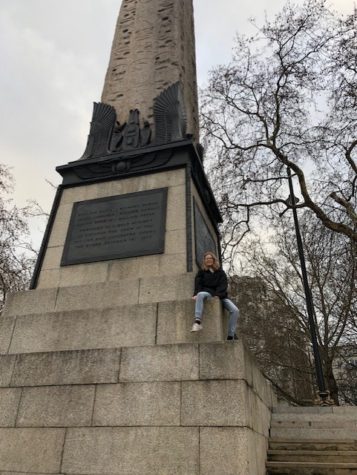
Payton is a senior at Rocky Mountain High School. They've been on the newspaper staff for 3 years. After high school, Payton wants to work as an investigative...


